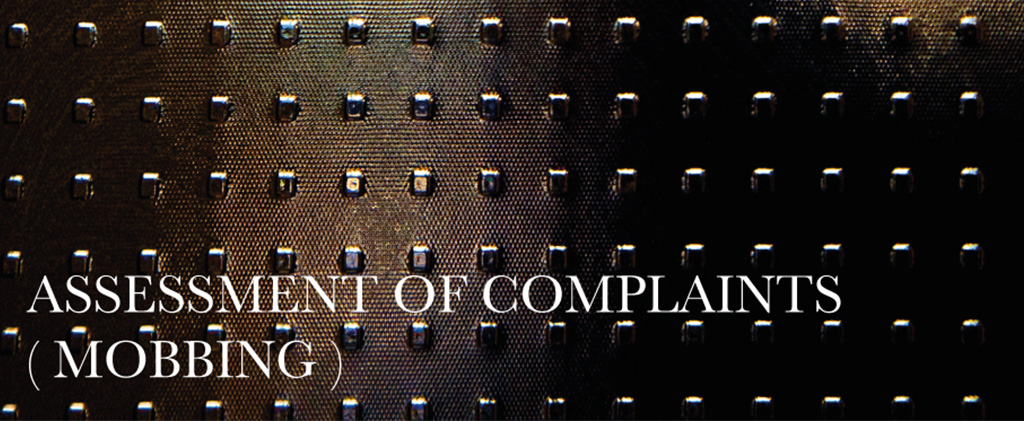
To clarify the frequently unclear situations behind an accusation of mobbing and/or sexual harassment enterprises or tribunals ask us to assess complaints. Our work is to distinguish between allegations (the feelings and perceptions of the parties involved) and the facts able to prove or disprove the allegations. We aim to: Understand the context of the complaint / Listen to the parties involved / Prove or disprove that real problems have been caused or real injury incurred / Establish if the accused person has been guilty of inappropriate or abusive behavior towards the complainant to the extent of mobbing or sexual harassment at the workplace / Define whether the company has fulfilled its obligation to protect the individual/s involved / Check the needs of the parties involved / Define measures to be taken to prevent any further harm.
Methodology : Define the frame of the mandate / Get to know the context of the issue from the mandate giver / Conduct initial individual interviews with the complainant and with the person accused of harassment / Conduct individual interviews with witnesses to the case as designated by the parties and conduct individual interviews with any other people involved / Conduct final interviews at the end of the process with the accuser and the accused / Analyse the information provided in order to establish how many people have made a similar allegation or described a similar fact / Produce a report.
The interviews referred to above are conducted by two consultants, one to put the questions and another to record the answers. The record is signed and dated at the end of each interview by the people present. The material which emerges from the interviews and our assessment of the case stays in Vicario’s sole possession. This material can only be released to a judge if a case is ultimately brought to court.
PUT INTO PLACE A STRUCTURE TO HANDLE COMPLAINTS INTERNAL TO THE COMPANY
Applying our experience we propose : To take into account lessons drawn from other existing structures designed to handle internal complaints / Clarify the expectations regarding these structures / Evaluate the competences and the room for manouevre which these structures provide / Define the process / Clarify the possibilities open to the internal auditors and their limits.
In order to ensure the quality of their work, training of the internal receivers of complaints is essential. The have to: Understand their roles and tasks as receivers / Be familiar with procedures and techniques / Be able to control one’s own emotions as well as those of others / Feel at ease in delicate interview situations. And to wind up, the supervision of the receivers of complaints enables us the maintain the quality of their work.